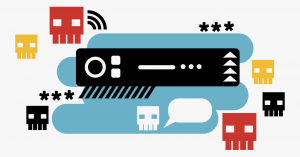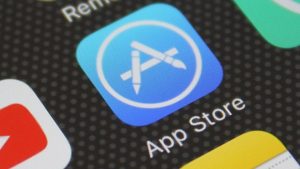Speaking of all-day use, the Versa 2 is finally getting an always-on display so you can tell the time even if the watch is asleep. This is a dimmed black-and-white interface that shows basic information like the time and your steps progress.
Fitbit also tweaked the home screen and dashboard, and its changes make the layout more finger-friendly. The new watch face, for example, features bigger font and more neatly organized stat readouts. In the new control panel, you’ll find larger icons for quick settings like Fitbit Pay, Sleep Mode (a sort of Do Not Disturb) and brightness.
Other new tools include Spotify integration that let you control your music playback over Bluetooth. If you’ve used Spotify Connect before, you’ll know the drill here — you can use the Versa 2 to control playback on pretty much any speaker, phone or headphones that have the app.
Fitbit is also adding new sleep insights to help you better understand your Z’s. It’s launching a new “sleep score” in its app, and any Fitbit with a heart rate monitor can use this. Your nightly score is a number out of 100. Half of that score is determined by the overall amount of time you slept, a quarter is from how long you spent in the deep and REM stages of sleep, while the remaining quarter is based on how much “restorative rest” you got. That last bit is when your heart rate drops to as low as your resting pulse, which is when your body produces growth hormones.
Other new sleep-related tools include estimated blood oxygen variation (to determine breathing irregularities) and an upcoming “Smart Wake” function. When enabled, this will look at the sleep stage you’re in during a window of time you want to get up, and wake you when it thinks you’re in light or REM sleep. This way, you won’t be dragged awake from deep sleep, which can feel disruptive and jarring.
Powering all these changes is a new processor that Fitbit says is more responsive than before. You’ll also find the same connected GPS feature and water-resistance that lets you take the Versa 2 with you into the pool. Battery life got a slight boost — Fitbit is now promising “five-plus” days of juice over the original’s “four-plus days.” The increased runtime estimate is impressive given the new screen size and technology. With the always-on display enabled, Fitbit gives a safer guess of “multiple days.” All of this is deliberately vague wording, and I’ll only get a real sense of how long the Versa 2 will last after I review it.
Meanwhile, you can order the Versa 2 on September 15th, so you can still wait for our deeper impressions before making the decision to buy one. Like I mentioned, the base model will cost $200, while a Special Edition bundle will cost $230. Both versions will have Fitbit Pay, which is nice since only the Special Edition had the mobile payment feature last year. This time, though, shelling out for the more expensive package gets you two watch bands and a 90-day trial for the new Fitbit Premium service.
Fitbit also announced a cheaper version of its popular smart weighing scale. The Aria Air will be available for pre-sale in September, at a starting price of $49.95, making it the company’s first connected smart scale that costs less than $50.
The Versa 2 is a compelling upgrade over the original, since the Alexa integration makes it much more useful. But if you’re looking for a more affordable yet well-rounded fitness watch, it looks like Fitbit has dropped the price of last year’s model to $170, making it a pretty good deal. And even though the new smartwatch also seems like a valuable purchase, those itching to get the Versa 2 should wait till we publish our full review before spending any money.
All products recommended by Engadget are selected by our editorial team, independent of our parent company. Some of our stories include affiliate links. If you buy something through one of these links, we may earn an affiliate commission.

Comments

62
Shares






